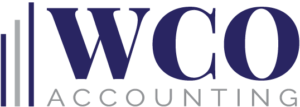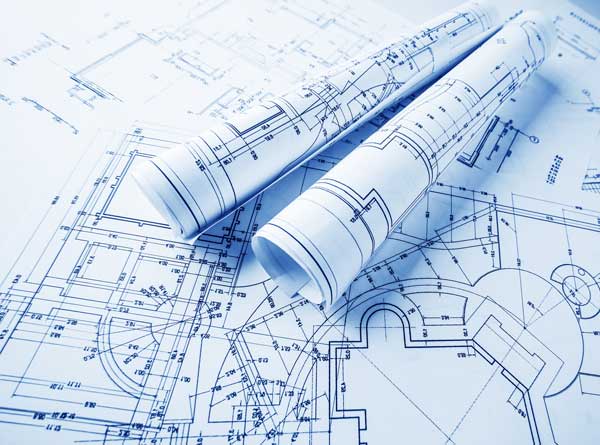We Offer Expert
Residential and Commercial Construction Accounting
Have a Question?
586.203.2113
Specialists in
Construction Accounting
The monthly accounting cycle for residential and commercial construction, property management, and real estate businesses, using integrated applications with accounting software and industry-specific accounting, involves several key steps to manage financial operations and track transactions. Here is a summary of the monthly accounting cycle for these industries:
Project Cost Tracking (Construction):
Record and track costs associated with construction projects, including materials, labor, subcontractors, and equipment. Utilize integrated project cost tracking modules or add-ons within the accounting software to accurately allocate expenses to specific projects and track project profitability.
Job Costing (Construction):
Implement job costing practices to analyze and track costs and revenues for individual construction projects. Utilize job costing modules or features within the accounting software to monitor project budgets, compare actual costs against estimates, and identify variances.
Accounts Payable and Receivable:
Manage accounts payable by recording and tracking vendor invoices, processing payments, and maintaining accurate records of outstanding payables. Utilize accounts payable modules within the accounting software to streamline invoice processing and payment workflows. Similarly, manage accounts receivable by recording customer invoices, tracking payments, and following up on outstanding receivables.
Lease and Rent Management (Property Management):
Track lease agreements, manage rents, and record tenant-related transactions. Utilize integrated lease and rent management modules within the accounting software to automate rent calculations, generate invoices, and track rental income and expenses.
Maintenance and Repair Expenses (Property Management):
Record and track maintenance and repair expenses for properties under management. Utilize maintenance and repair expense tracking modules or features within the accounting software to accurately allocate expenses to specific properties and track maintenance costs.
Property Valuation and Depreciation (Real Estate):
Perform periodic property valuations and track depreciation for owned properties. Utilize property valuation and depreciation tracking modules within the accounting software to maintain up-to-date property values and calculate depreciation expenses.
Financial Reporting:
Prepare financial statements, including income statements, balance sheets, and cash flow statements. Utilize the financial reporting capabilities within the accounting software to generate accurate and comprehensive financial statements for the business.
Budgeting and Forecasting:
Develop and track budgets for construction projects, property management, and real estate activities. Utilize budgeting and forecasting modules or features within the accounting software to set financial goals, monitor performance, and compare actual results against budgeted amounts.
Compliance and Regulatory Reporting:
Ensure compliance with relevant regulatory requirements, such as tax filings, financial disclosures, and industry-specific regulations. Utilize compliance reporting modules or features within the accounting software to streamline the preparation and submission of required reports.
Integration with Other Systems:
Integrate the accounting software with other systems, such as project management software, property management platforms, or CRM systems, to streamline data exchange and improve efficiency in data entry and reporting.
By leveraging integrated applications and industry-specific accounting features within accounting software, construction, property management, and real estate businesses can streamline their accounting processes, accurately track transactions, and generate insightful financial reports. Consulting with WCO Accounting professionals experienced in these industries can provide further guidance in addressing industry-specific challenges and optimizing financial management for your business.
Accounting for Residential Builders
The monthly accounting cycle for residential and commercial construction, property management, and real estate businesses, using integrated applications with accounting software and industry-specific accounting, involves several key steps to manage financial operations and track transactions. Here is a summary of the monthly accounting cycle for these industries:
Project Cost Tracking (Construction): Record and track costs associated with construction projects, including materials, labor, subcontractors, and equipment. Utilize integrated project cost tracking modules or add-ons within the accounting software to accurately allocate expenses to specific projects and track project profitability.
Job Costing (Construction): Implement job costing practices to analyze and track costs and revenues for individual construction projects. Utilize job costing modules or features within the accounting software to monitor project budgets, compare actual costs against estimates, and identify variances.
Accounts Payable and Receivable: Manage accounts payable by recording and tracking vendor invoices, processing payments, and maintaining accurate records of outstanding payables. Utilize accounts payable modules within the accounting software to streamline invoice processing and payment workflows. Similarly, manage accounts receivable by recording customer invoices, tracking payments, and following up on outstanding receivables.
Lease and Rent Management (Property Management): Track lease agreements, manage rents, and record tenant-related transactions. Utilize integrated lease and rent management modules within the accounting software to automate rent calculations, generate invoices, and track rental income and expenses.
Maintenance and Repair Expenses (Property Management): Record and track maintenance and repair expenses for properties under management. Utilize maintenance and repair expense tracking modules or features within the accounting software to accurately allocate expenses to specific properties and track maintenance costs.
Property Valuation and Depreciation (Real Estate): Perform periodic property valuations and track depreciation for owned properties. Utilize property valuation and depreciation tracking modules within the accounting software to maintain up-to-date property values and calculate depreciation expenses.
Financial Reporting: Prepare financial statements, including income statements, balance sheets, and cash flow statements. Utilize the financial reporting capabilities within the accounting software to generate accurate and comprehensive financial statements for the business.
Budgeting and Forecasting: Develop and track budgets for construction projects, property management, and real estate activities. Utilize budgeting and forecasting modules or features within the accounting software to set financial goals, monitor performance, and compare actual results against budgeted amounts.
Compliance and Regulatory Reporting: Ensure compliance with relevant regulatory requirements, such as tax filings, financial disclosures, and industry-specific regulations. Utilize compliance reporting modules or features within the accounting software to streamline the preparation and submission of required reports.
Integration with Other Systems: Integrate the accounting software with other systems, such as project management software, property management platforms, or CRM systems, to streamline data exchange and improve efficiency in data entry and reporting.
By leveraging integrated applications and industry-specific accounting features within accounting software, construction, property management, and real estate businesses can streamline their accounting processes, accurately track transactions, and generate insightful financial reports. Consulting with accounting professionals experienced in these industries can provide further guidance in addressing industry-specific challenges and optimizing financial management for your business.


